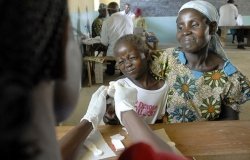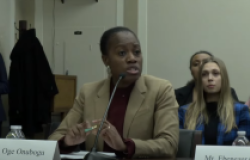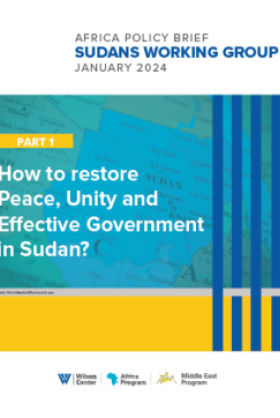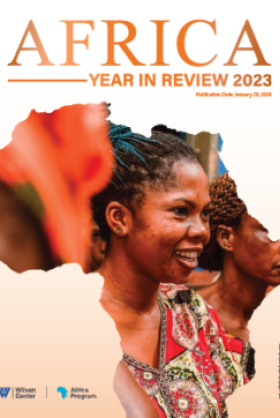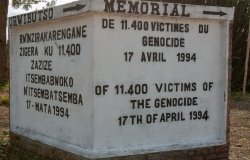The Pending Nigerian Election: a step toward democratic consolidation or a descent into chaos?
In two months time, Nigeria – the African continent's most populous nation – will be holding national elections against a backdrop of significant political tensions and the ever-present threat of violence. Yet, the proliferation of other international crises – from Afghanistan and Iraq to Somalia and Sudan – have let Nigeria fall off the radar screen of both the American media and policy community. In response to growing concern among observers of the Nigerian scene, several institutions are collaborating to host a series of four public events in Washington on the Nigeria situation. The members of the sponsoring consortium include the Woodrow Wilson International Center for Scholars, the Center for Strategic and International Studies, Johns Hopkins' School of Advanced International Studies, the Council on Foreign Relations, the U.S. Institute of Peace, and Northwestern University .
The series of four conferences – to be held over the next several weeks – is designed to help inform US and international policy toward Nigeria. Pre-election programs will examine the over-all political environment as the country moves toward elections, and the state of preparations for the election, the particular implications of continuing volatility in Nigeria's oil-rich Niger Delta region, the election campaign and immediate pre-election political dynamics. The last conference in the series will be directed to a post-election assessment of the elections and Nigeria's political future. The conference series will feature a number of Nigerian experts as well as outside analysts and American policy makers.
The dates and venues of the four conferences are as follows:
• March 9 -- John Hopkins' SAIS – Elections Preparations and General Political Environment
• March 14 – CSIS – The Niger Delta
• April 4 – Council on Foreign Relations – Pre-Election Assessment
• May 18 – Woodrow Wilson Center – Post-Election Assessment
Related Program

Africa Program
The Africa Program works to address the most critical issues facing Africa and US-Africa relations, build mutually beneficial US-Africa relations, and enhance knowledge and understanding about Africa in the United States. The Program achieves its mission through in-depth research and analyses, public discussion, working groups, and briefings that bring together policymakers, practitioners, and subject matter experts to analyze and offer practical options for tackling key challenges in Africa and in US-Africa relations. Read more




